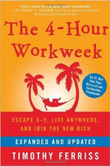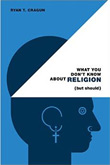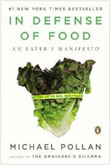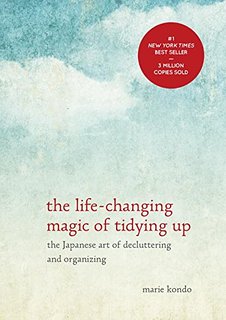So Many Reasons to Appreciate Podcasts
Brandon Sun, September 26, 2016 - David McConkey
September 30 is International Podcast Day. Who knew? And what’s all the fuss about? I have become a super podcast enthusiast, so I am happy to expound upon said subject!Podcasts are audio files that are downloaded from the Internet. You can listen to them on your computer, phone or other device. Podcasts share three characteristics with other parts of the new media scene:
• Like the Internet in general, podcasts feel familiar, but in a digital way. Much of the Internet resembles newspapers, letters in the mail, movies, or TV. Podcasts are like radio.
• Podcasts are ready to go at your convenience.
• Almost always, podcasts are free of charge.
The podcast is so today – the word itself was coined only in 2004. Podcasts became a definite “thing” a couple of years ago with the hit Serial, which was about a murder case from the 1990s. (The crime was recently in the news when a fresh trial was ordered.)
U.S. President Barack Obama created a stir last year when he was a podcast guest. Obama said the “N-word” when he appeared on WTF with Marc Maron. The whole event is typical of podcasting. Comedian Maron records in his garage, says anything, and makes his podcast available for free. Started in 2009, episode downloads now number over 100 million.
If you are new to the podcast genre, try “Googling” a personality or topic you are already interested in. Perhaps your favourite author has been featured on a podcast. Or perhaps they now make their own podcast to expand and promote their regular work. Also, other media like newspapers, magazines, websites, and TV and radio shows are adding podcasting to their mix of content delivery.
There are many ways to discover podcasts, including curated lists and apps. Podcast Playlist is a CBC Radio program that samples diverse podcasts. You can tune in Tuesday or Saturday afternoons on the radio or – naturally – anytime as a podcast.
A distinct advantage of podcasts: you can listen to them while doing other things, like chores or commuting. I like to listen to podcasts (as well as audiobooks) while walking. All free. Thank you, Internet and Brandon Public Library!
One podcast I enjoy is Malcolm Gladwell’s 10-part series, Revisionist History. Gladwell lets his imagination run wild as he explores a quirky range of subjects. (Several years ago, I reviewed here Gladwell's book Outliers: The Story of Success.) The podcast’s half-hour episodes have original music and are tightly produced, scripted and edited.
Another podcast I like has a very different style: “The Tim Ferriss Show.” (I have previously reviewed here the book by Ferriss, The 4-Hour Workweek.) In just a couple of years on his podcast, Ferriss has interviewed 150 people.
To keep up this pace, Ferriss records his interviews over the phone, at his guest’s office or home, in his own living room, and even outside in a park. He does little editing – interviews can go for two hours or more. Interviews can be interrupted by his dog barking, or by he and his guest pausing for a glass of wine – sometimes, he admits, a bit too much wine!
Ferriss is an excellent interviewer. His aim is “to deconstruct world-class performers.” His guests have included entertainment celebrities, athletes and Silicon Valley billionaires.
Marshall McLuhan’s famous notion is that we are affected by the message of the medium itself, separate from the content. Compared to reading, I do find there is something different in how a podcast (or audiobook) gets into my head.
Podcasts have another unusual quality, according to business guru Seth Godin in an interview with Ferriss. Godin observed that because we don’t think we are paying attention to audio in the background, we become open to it in a special way.
When walking and listening to a podcast, I sometimes have to stop and simply be astounded. What fascinating and inspiring conversations I have the privilege of listening to!
Gladwell reflected recently on the nature of the medium on The Late Show with Stephen Colbert. Gladwell is a successful journalist and author. So Colbert asked Gladwell: why make a podcast? Gladwell answered that he wanted to reach his audience on a more emotional level. Gladwell hypothesized that we process information differently when listening as opposed to reading.
When we use our eyes, Gladwell said, we think. But when we use our ears, we feel.
* * *
See also:
Tim Ferriss on Amazon.com (on
Amazon.ca
)
Malcolm Gladwell on Amazon.com (on
Amazon.ca
)
Exploring What's Lost in a Connected World
Deepening Our Thinking in the Internet Age: Ten Tips
Popular Right Now:
- 15 Tips for Healthy Eating
- Quality of Life, Well-Being Research Something We Can Feel Good About
- Diets Don't Work, So What Does?
- Political Contributions: Top Ten Canadian Tax Tips
- Nestle Fitness 14 Day Weight Loss Program; What is Wrong Here?
- Charitable Donations: Top Ten Canadian Tax Tips
Must Read Books:
The 4-Hour Workweek:
Escape 9-5, Live Anywhere, and Join the New Rich

What You Don't Know About Religion (But Should)

In Defense of Food:
An Eater's Manifesto

The Life-Changing Magic of Tidying Up:
The Japanese Art of Decluttering and Organizing

Don't
Even Think About It:
Why Our Brains are Wired to Ignore Climate Change

Like This? Share It!
Press Ctrl + D to Bookmark!
